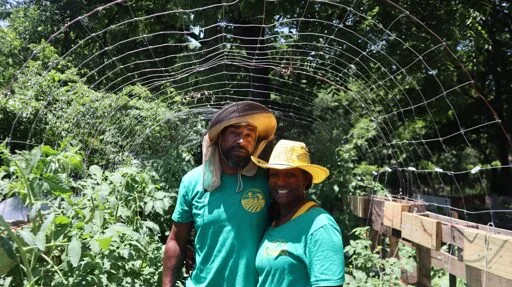How an urban farm in Little Rock builds community trust
How an urban farm in Little Rock builds community trust
How an urban farm in Little Rock builds community trust

The movement to restore Black agricultural heritage has boomed alongside urban agricultural (UA) research, as Black communities in urban areas become litmus tests and basecamps for UA projects. This is often due to a combination of the higher rates of food apartheid and environmental racism experienced by Black communities and the ways that community green spaces have become creative resistance efforts. Efforts to reclaim Black land are also efforts to reclaim Black belonging and expertise in tackling agricultural issues. While there are now many stories across the mediasphere focused on the empowerment, agency, and resistance of Black communities fighting inadequate urban food systems, Black Americans’ cultural roots in agriculture descended from the South and did not vanish as part of the Great Migration. It is common for Black American descendents from the South to have seen their elders garden with whatever space they had, which is why collard greens and tomatoes are still commonly grown in Los Angeles backyards.
On its own, Turtle Island can feed 85 families consistently over 12 months. Those 85 families average one adult with 2.5 children, which, by his metrics, comes out to about 250 to 300 people who rely on food from the farm each year. Once the greenhouse is up and running, his yield should be threefold.
A partnership between Turtle Island and Serenity Urban Wellness allowed Serenity Urban Wellness to apply for grants to purchase meat and other food. They’ve also become authorized Supplemental Nutrition Assistance Program (SNAP) retailers, but for the most part, the food they offer is free, and they’ve never asked the community they serve for donations.